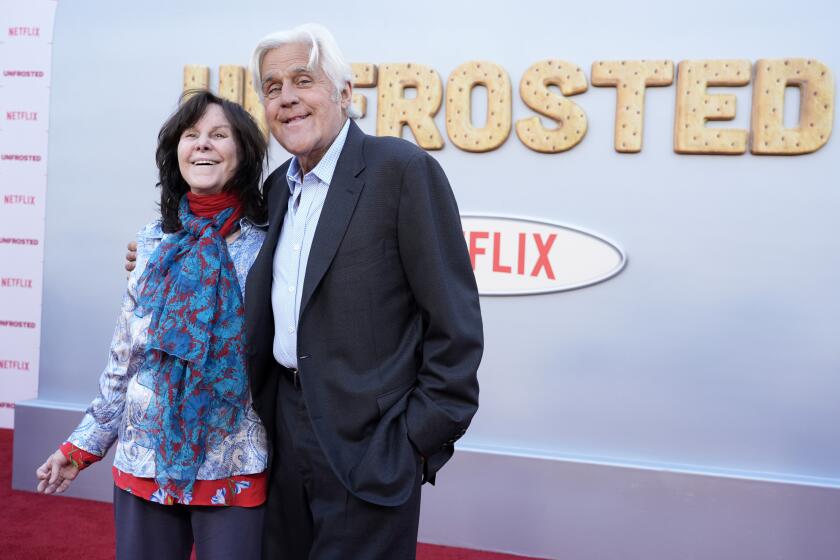PERSPECTIVE ON TELEVISION : Much Vaster, Still Mostly a Waste : Technology has brought us an explosion of choice, but has failed to turn the wasteland into a promised land.
- Share via
While serving as chairman of the Federal Communications Commission during the Kennedy Administration, I said that American television was a “vast wasteland.” Today, 30 years later, we have expanded television enormously, but we still waste its vast potential.
What happened in 30 years? The number of television sets in American homes increased almost fourfold. Cable expanded from serving 1 million homes in 1961 to serving more than 55 million today. The number of television stations more than doubled. VCRs--unavailable in 1961--are in more than 58 million American homes.
For the record:
12:00 a.m. May 10, 1991 For the Record
Los Angeles Times Friday May 10, 1991 Home Edition Metro Part B Page 7 Column 1 Metro Desk 1 inches; 32 words Type of Material: Correction
Newton Minow--In Wednesday’s Commentary by former FCC Commissioner Newton Minow, a production error inserted extraneous words in a sentence, It should have read: In 1961 I worried about quiz-show scandals and industry payola.
Cable, broadcast TV and home video offer an almost unlimited variety of programming. If you are a sports fan, a news junkie, a stock market follower, a rock music devotee, a person who speaks Spanish, a nostalgic old-movie buff, a congressional hearing observer, even a weather watcher, you now have your own channel. And you can watch a program when you want to, not just when it’s put on the schedule.
Yet, to many of us, this enlarged choice does not satisfy the public interest. There are several reasons.
For one, choice through cable comes at a price not all can afford, and cable is still not available to the entire nation. More choices also may not necessarily mean better choices. As CBS President Howard Stringer said in a speech at the Royal Institute in London last year, “We see a vast media-jaded audience that wanders restlessly from one channel to another in search of that endangered species--originality.”
Another of contemporary television’s high icons, Brandon Tartikoff, left NBC last week for Paramount and said in parting that he worries for the future of network television. Well he should. Although NBC became the No. 1 network under his leadership, its ratings were actually 40% higher when Tartikoff took over 11 years ago. That’s because ABC, CBS and NBC continue to lose audience to the enlarged choices available. Yet each network continues to see the world in terms of only the two other original networks rather than the new universe of cable and independent television, VCRs and satellites.
In 1961 I worried about quiz-show Staff Writer Jane Hallscandals and industry payola. Now I’m faced with a recent study showing that by the time a child is 18, he or she has seen more than 25,000 murders on television. In 1961 I worried that my children would not benefit much from television; today I worry that my grandchildren will actually be harmed by it.
One evening, remote control in hand, I flipped through the channels and saw a man loading a gun on one, a different man aiming a gun on a second and another man shooting a gun on a third.
Can this be changed? My own answer is yes. If we want to, we can provide the American people with meaningful and enriched choices. I reject the view of an FCC chairman in the early 1980s who said that “a television set is merely a toaster with pictures.” I reject the ideological view that the marketplace will regulate itself and that free competition will result in perfection. Think of the savings-and-loan industry, the airline industry, the junk-bond market.
Felix Rohatyn, a champion of the marketplace, was on target when he said, “Though I believe that the marketplace knows best most of the time, I am skeptical that it should always be the ultimate arbiter of economic action, and I am more than willing to interfere with it when it becomes a distorting rather than a benign influence.”
Consider the recent blanket of media hype about Kitty Kelley’s biography of Nancy Reagan. Or, even more telling, about the activities of the Kennedy family in Palm Beach. The New York Times justified its publication of the alleged rape victim’s name on the basis that NBC’s nationwide broadcast took the matter of her privacy out of its hands. According to published reports, NBC based its decision partly on the publication of the name by the Globe, a supermarket tabloid. The Globe was reportedly trying to match the London Sunday Mirror. How rapid a descent to the lowest common denominator.
The television marketplace alone is not enough to fulfill the demands of the public interest. If television is to change, the men and women in television--and those who are charged with regulating it--will have to make it a leading institution in American life rather than merely a reactive mirror of the marketplace. For the record of the last 30 years gives the television marketplace an A+ for technology, but only a C for using that technology to serve human and humane goals. A new generation now has the chance to put the vision back into television, and to travel from the wasteland to the promised land.
More to Read
The biggest entertainment stories
Get our big stories about Hollywood, film, television, music, arts, culture and more right in your inbox as soon as they publish.
You may occasionally receive promotional content from the Los Angeles Times.










